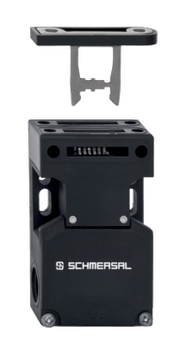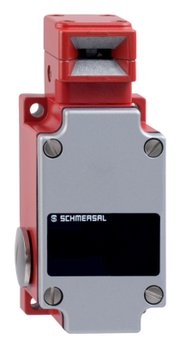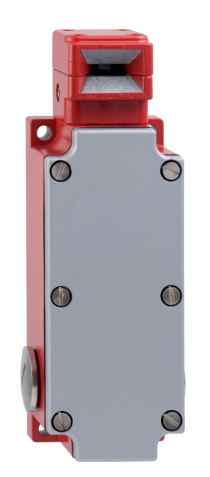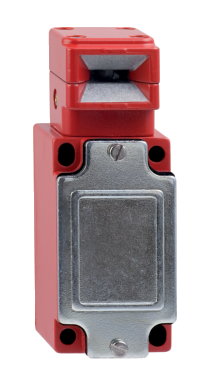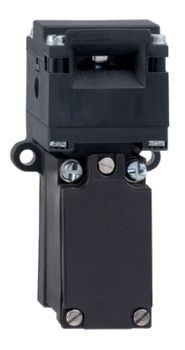Interruptores de seguridad con actuador separado
Nivel de codificación según EN ISO 14119
Principio activo
Fuerza de retención
Cantidad de contactos auxiliares
Cantidad de contactos de seguridad
Certificados
Temperatura ambiente, máxima
Temperatura ambiente, mínima
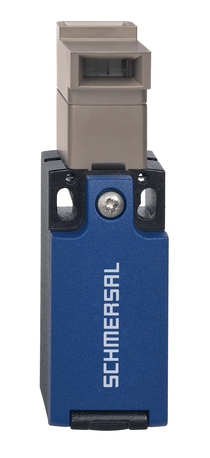
AZ 215/216
- Diseño a EN 50047
- El cabezal de accionamiento, puede situarse en 4 posiciones a 90º
- Diversas variantes de contactos
- Fuerza de enclavamiento 12N o 30N según la variante
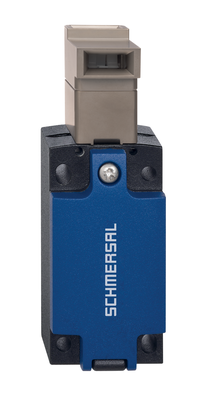
AZ 315/316
- Diseño a EN 50041
- El cabezal de accionamiento, puede situarse en 4 posiciones a 90º
- Diversas variantes de contactos
- Fuerza de enclavamiento 12N o 30N según la variante

AZ 15
- Plástico
- Doble aislamiento
- Larga vida
- 52 mm x 75 mm x 30 mm
- Codificación universal
- Amplia zona de conexionado
- Contactos con elevado nivel de fiabilidad con tensiones y corrientes débiles
- Agujeros alargados para el ajuste y circulares para el posicionado
- Insensible a la suciedad
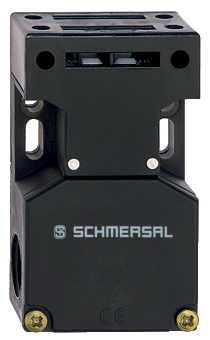
AZ 16
- Caja de termoplástico
- Doble aislamiento
- Amplia zona de conexionado
- 52 mm x 90 mm x 30 mm
- Codificación universal
- Larga vida
- Contactos con elevado nivel de fiabilidad con tensiones y corrientes débiles
- Insensible a la suciedad
- Agujeros alargados para el ajuste y circulares para el posicionado
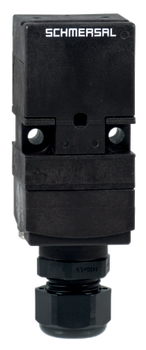
AZ 17
- Caja de termoplástico
- Doble aislamiento
- Larga vida
- pequeñas dimensiones
- Codificación universal
- Contactos con elevado nivel de fiabilidad con tensiones y corrientes débiles
- Insensible a la suciedad

AZ201
- Caja de termoplástico
- Protección contra la neutralización/manipulación según las necesidades mediante tecnología RFID
- Máxima longitud de la cadena de sensores 200m.
- Circuito en Serie auto controlados
- 3 LEDs para indicar las condiciones de operación
- La tecnología sensoria permite un desalineamiento entre actuador y interruptor de ± 5 mm verticalmente y ± 3 mm horizontalmente.
- Indicado para puertas batientes y correderas
- Diagnosis inteligente
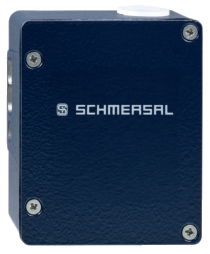
AZ 415
- Caja metélica
- Larga vida
- Contactos con elevado nivel de fiabilidad con tensiones y corrientes débiles
- Retención regulable hasta 400 N
- 2 entradas de cable M 20 x 1.5
- Accionador asistido por resorte
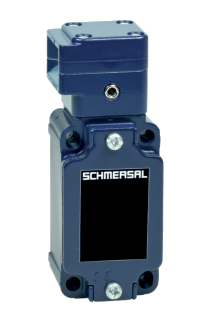
AZ 3350
- Caja metélica
- Manivela de pestillo
- Larga vida
- 40,5 mm x 114 mm x 38 mm
- Contactos con elevado nivel de fiabilidad con tensiones y corrientes débiles
INTERRUPTORES DE SEGURIDAD CON ACTUADOR SEPARADO
Los interruptores de seguridad con actuador separado se utilizan en todos los ámbitos de la producción. Se han desarrollado especialmente para aquellos resguardos de seguridad que son extraíbles, desplazables lateralmente o giratorios, que solo pueden garantizar la seguridad de funcionamiento requerida en el puesto de trabajo si permanecen cerrados. Son utilizados en muchos tipos de máquinas-herramienta, ya que en estos casos es frecuente la necesidad de acceder a la zona de peligro para el manejo de la máquina. Además, los interruptores de seguridad pueden ser instalados posteriormente en perfiles acabados.
DISEÑO Y PRINCIPIO DE FUNCIONAMIENTO DE LOS INTERRUPTORES DE SEGURIDAD CON ACTUADOR SEPARADO
Al contrario de la categoría 1, los interruptores de seguridad del tipo 2 según la norma EN ISO 14119 no están unidos físicamente, pero al conmutar se separan o se unen de forma funcional. Si el operador abre el resguardo de seguridad, el actuador es separado del equipo base. De esta manera, en el interruptor de seguridad los contactos NC se abren y los contactos NA se cierran de forma forzada.
Los interruptores de seguridad con actuador separado son un ámbito central de la cartera de productos del Grupo Schmersal. La gama de distintas series es correspondientemente amplia. De esta manera es posible ofrecer diversos formatos y tamaños. Los materiales utilizados, el número de contactos de seguridad, así como el tipo de conexión y la integración de funciones adiciones también se distinguen dependiendo del formato y del modelo.
INTERRUPTORES DE SEGURIDAD TAMBIÉN CON INTERFACE SAW Y CERTIFICACIÓN ATEX
Todos los interruptores de seguridad con actuador separado del Grupo Schmersal cumplen como mínimo con el tipo de protección IP67 y además son resistentes al polvo y están protegidos contra la inmersión temporal. Junto con un relé de seguridad correspondiente, se puede alcanzar además el nivel de rendimiento PL d o e según la norma EN ISO 13849-1. Parte del programa de seguridad de la empresa son también versiones con interface AS-i SaW integrada (AS-Interface Safety at Work), así como variantes con certificación ATEX para el uso en entornos potencialmente explosivos. El Grupo Schmersal ofrece información detallada sobre los distintos interruptores de seguridad en su catálogo online.
.png?id=3f3339435fb0327df6974792fc349718)
